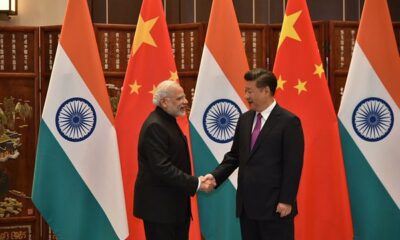Forgotten Dairies
Of hijabs and robes -By Tunji Olaopa


In 2000, the then Zamfara State Governor, Ahmad Sani Yerima, precipitated a constitutional crisis in Nigeria when he instituted the implementation of the Islamic Sharia law in the state. Since then, the Sharia law has become significant proportion of legal framework in Sokoto, Katsina, Jigawa, Kano, Bauchi, Borno, Yobe, and Kebbi. The Sharia issue provoked a serious constitutional crisis, especially over the secular status of the Nigerian state. In 2013, Osun State also came into the news over the legal and constitutional issue of religious dressing in public schools. The Osun hijab crisis got to a head when a court case, instituted three years ago, was finally resolved a few weeks ago in favour of the Osun State Muslim Community. The court ruled in favour of putting on the hijab as part of the Muslim female dress code to public school.
In an outrageous reaction to the ruling, Christian students at the Baptist High School, Iwo also appeared in school in their various choir robes and garments.
The judge who oversaw the case had warned about the dangerous dimension the case could take. He is right. The Osun hijab crisis is a “benign” side to the Boko Haram religious insurgency against the Nigerian state. Interestingly, the Boko Haram incidence began as an all-out war against the conception of education in Nigeria. And it gradually snowballed into a war to institute an Islamic state in the Northern part of Nigeria. “And what is religion, you might ask. It’s a technology of living,” says Toni Bambara, the US novelist. But it has become a technology that, like the nuclear bomb, has led to thousands of deaths and maiming. The Boko Haram insurgents have since become the world’s deadliest terrorist group ahead of ISIS, Al-Shabaab, and others, with over 7000 Nigerians killed. The name and the nature of God has become an inflammable and divisive force rather than a divine blueprint for life.
When the hijab controversy reared its head in Europe, it was no less volatile as it is in Osun State. In France, for instance, what went under the name of the “scarf affair” (l’affaire du voile islamique) is similar in all respects to the Osun situation. In September 1989, three female Muslim students of Gabriel Havez Middle School, Crell were suspended for refusing to remove their scarves. The issue then subsequently spread to Picardy where three other girls were equally suspended for putting on the scarf, in Nantua where teachers held a strike action to protest the use of the religious scarf in public schools, and in Mantes-la-Jolie where students also organised a demonstration in support of the right to put on the religious veil in school.
The issue, especially in France, Spain, Switzerland, Denmark, Germany, Italy, The Netherlands, etc., borders on the nature of religion in the public sphere, the idea of assimilation and integration, multiculturalism, minority status, and even Islamophobia. Political integration has equally remained Nigeria’s albatross since independence. The amalgamation of the Nigerian state placed a very heavy plural burden on the Nigerian leadership to craft a governance dynamics that will ensure that the various constituent parts of postcolonial Nigeria successfully merge together. However, with crises like the hijab controversy, it is obvious that Nigeria is far from integration. Benjamin Franklin, the US statesman and scientist, puts the matter bluntly but straightforwardly: “We must indeed all hang together, or most assuredly, we shall all hang separately.” In spite of the pithy beauty of Nigeria’s national motto—Unity and Faith, Peace and Progress—we have really not found the formula for hanging together beyond the coercive necessity of the Nigerian state.
What underlies all these issues is the meaning and nature of secularity and secularism. From its Latin origin (i.e. saeculum), the “secular” has turned into a conceptual means for differentiating the divine from the earthly. The secular is therefore meant to refer to human temporal affairs. By the time of the enlightenment, the secular became a firm policy of separating Church from State, or of disentangling democratic governance and economic issues from religious interference. Thus, secularity in this sense refers to the extent by which a society’s institutions, constitutional processes, cultural ethos, bureaucratic norms and economic reality have been dissociated from religious influence. Secularism simply refers to the philosophical justification for pushing the boundaries of secularity within any society.
Religion is the most potent force against the spread and form establishment of secularity anywhere. Fundamentalism, for instance, is a raging religious view about the ultimate control of the affairs of society. One of the critical arguments of the Boko Haram insurgents, in fact an argument shared by most Islamic fundamentalists, is that the strict interpretation of Sharia religious law must be the foundation of legal-political business in Nigeria.
The violent desire to establish a caliphate in the North, for sure, is just a short term one for the eventual Islamisation of the whole of Nigeria and the eradication of all forms of secular modernity.
Religion has since independence remained a critical crack in Nigeria’s national configuration. The appearance of “Faith” in Nigeria’s national motto seems to signal the recognition of the role of religion in Nigeria’s affair. Even the second stanza of the anthem is a clear religious invocation to the “God of creation” to direct the “noble course” of nation building. The word “religion” appeared 12 times in the Nigerian 1999 Constitution and ‘religious” 10 times. Section 10 of the Constitution state clearly: “The Government of the Federation or of a State shall not adopt any religion as State Religion.” This seems straightforward enough.
This is Nigeria’s nod to secularity even without any mention of that concept in the entire constitution. The next significant provision of the Constitution is section 38, subsection 1: “Every person shall be entitled to freedom of thought, conscience and religion, including freedom to change his religion or belief, and freedom (either alone or in community with others, and in public or in private) to manifest and propagate his religion or belief in worship, teaching, practice and observance.”
There are several deductions to be made from this provision. One of them borders on the relationship between religion and identity. Islam happens to be a religion that transforms the identity of its adherent, not least in terms of dressing. Thus, if hijab is a significant part of my identity as a female Muslim, why must I be prevented from that expression?
After all, the constitution permits a public or private expression. It is in this sense that the court is justified in protecting the interest of the Muslim community which insisted that its freedom of religious expression is potentially under breach. But this is hardly the end of the matter about religion and secularity.
It seems that Nigeria’s nod to secularity is half-hearted. And the reason is not far-fetched. In spite of the provision of Section 10, religion plays a critical role in our political language and culture. When former President Jonathan visited Israel to pray, it was not really an individual act of faith. It was a state act of religious invocation to God. In 2012, the Jonathan administration adopted the second stanza of the national anthem as official prayer. The Nigerian state regularly sponsors pilgrimage to the Holy Lands. Thus, the state in itself precipitates religious crisis rather than strengthening its secularity. When the idea of secularity was formulated during the Enlightenment, it was premised on the belief that humans possess the capacities to transform their own lives and institute a social governance framework that makes society heaven on earth. A secular state is therefore supposed to be a state that is sufficiently democratic and institutionally viable enough to ground religious tolerance on a material prosperity that generates an ecumenical spirit of unity.
This requires not only a constitutional nod to secularity, but a gradual deepening of the separation of religion from state matters that translates into institutional dynamics that delivers democratic dividends to Nigerians. It seems to me that this constitutes a worthy challenge for secularity in Nigeria than allowing religion take the centre stage of our charged political predicament. One can only wonder, for instance, what could have happened if Nigeria’s secularity solidifies sufficiently to capture the impressionable hearts of the almajiris in the North rather than surrendering those hearts to the dangerous indoctrination of religious demagogues.
Dr. Olaopa is the Executive Vice Chairman Ibadan School of Government and Public Policy



















